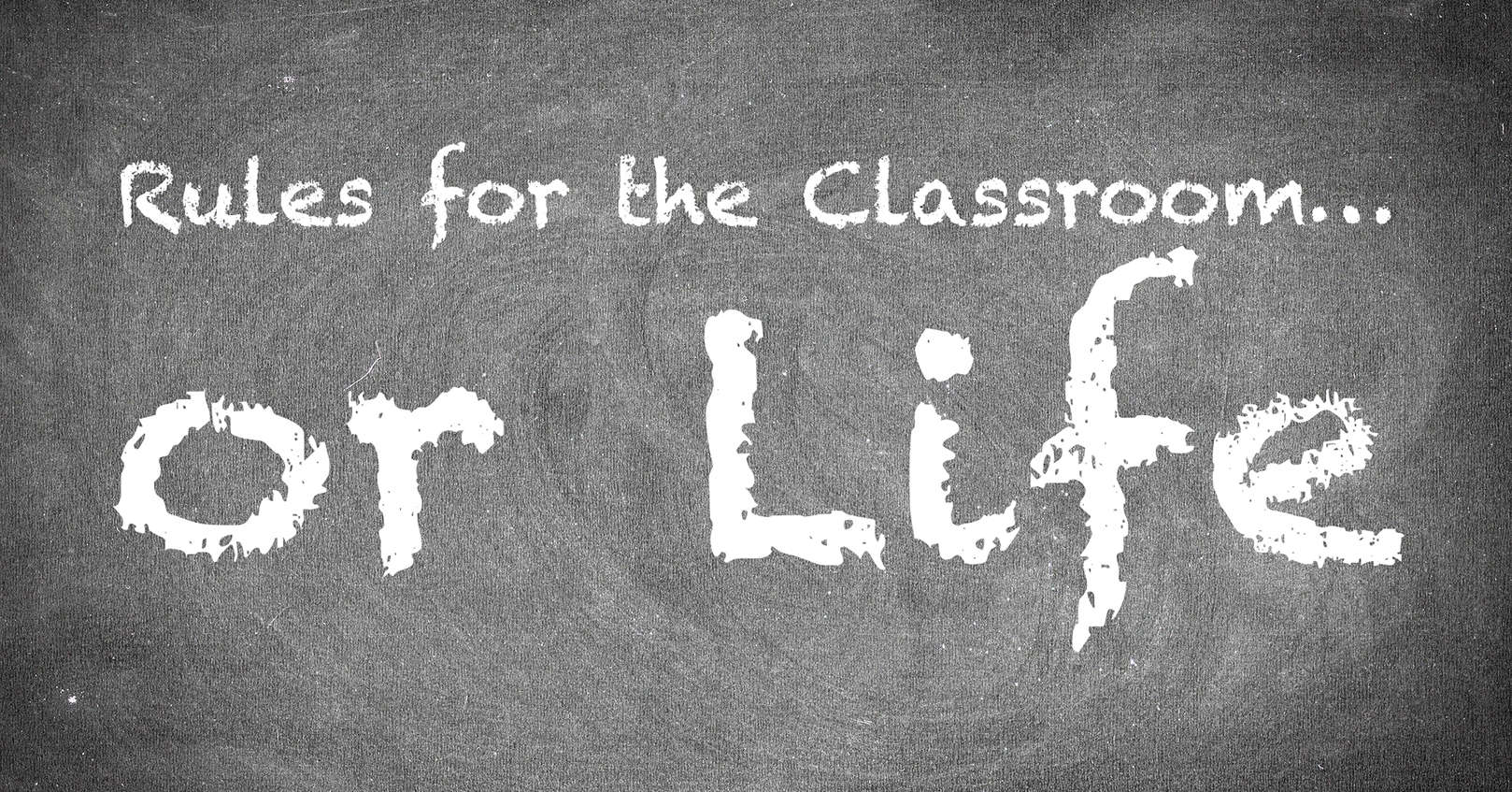
In a recent sermon I mentioned my “Team Expectations” (aka classroom rules) from when I taught. Katie shared them on Facebook, saying, “They could also be rules for the home or life in general.” In response to some requests for them, here they are exactly as they were posted in the back of my classroom with brief explanations below each, along with a book suggestion for teaching and learning these rules.
LaPierre’s Team Expectations
1. Be honest—don’t ever lie for any reason.
The world acts like lying is no big deal. Lying is even expected in some circles (politics). But lying is one of the six things God hates, according to Proverbs 6:17. I wanted my kids to know that.
I’d recommend Telling the Truth: A Book about Lying (Growing God’s Kids).
2. Be humble—don’t brag or be prideful.
Also included in this rule is what I called, “subtle brags” or bragging when you’re acting like you’re not. In real life it looks like being the hero of your own stories, and on Facebook it looks like:
- “I’m so glad there are still nice people in this world. An old man just came up to me and said, ‘You sure are beautiful!’”
- “I’m so completely exhausted, but what a blessing it was to spend the entire day helping my friend move.”
- Posting shameless selfies. If the majority of your profile pictures are just your face . . . from a few inches away . . . and you swap that picture out for another picture of just your face from a few inches away, then this is probably you.
Proverbs 27:2: Let another else praise you, and not your own mouth, a stranger and not your own lips.
I’d recommend Humility: The Beauty of Holiness.
3. Be nice—say and do things that help your teammates: compliment, encourage, clap, and cheer for them.
Kids are naturally competitive and jealous. The solution is to encourage them to rejoice when others succeed.
1 Thessalonians 5:11: Encourage one another and build each other up.
I’d recommend Humility: The Beauty of Holiness.
4. Do not say or do anything that might hurt someone’s feelings.
Usually this is worded like, “Do not say anything mean.” The problem with that is the word mean is subjective. All year you’ll have to listen to kids saying, “I didn’t say anything mean” or “I didn’t mean to be mean.” But when another kid is crying, they can’t say, “I didn’t hurt his feelings.”
Ephesians 4:29: Do not let any abusive language come out of your mouth, but only what is helpful for building others up according to their needs.
I’d recommend Suzy Swoof: A Book About Kindness (Building Christian Character).
5. Apologize if you hurt someone’s feelings . . .
- even if it was an accident
- even if someone hurt your feelings too, because you still need to apologize for your actions
- and do not use the word “but” or make any excuses when you apologize.
I wrote a completely different post about apologizing, but for now I’ll just say most people don’t know how to apologize. If your apology sounds like, “I’m sorry BUT…” or “I’m sorry YOU…” it’s not an apology; it’s an excuse disguised as an apology.
I wanted to start teaching kids early the right way to apologize. If people have hurt you and you were looking forward to an apology but heard, “I’m sorry you’re mad,” then you probably wish that person had a teacher with this rule.
James 5:16: Confess your sins to each other.
6. Do not shift blame to someone else for your actions—YOU are completely responsible for all of YOUR actions.
99% of the time when kids get in trouble, the first word out of their mouths is the name of another student or the pronouns he, she, or they:
- “Brian pushed me first.”
- “She was talking to me first.”
- “They told me I could.”
It began at The Fall when Adam and Eve were confronted:
- Adam said, “The WOMAN whom YOU gave me, gave me the fruit” (Gen 3:12).
- Eve said, “The SERPENT deceived me” (Gen 3:13).
In a few words, Adam blamed God and Eve, and with nobody else to blame, Eve said, “The devil made me do it.” The moment sin entered the world and man received a sin nature, with it came the terrible habit we all have of shifting blame.
I wanted to try to prevent that in my classroom as much as possible.
I’d recommend this post I wrote about apologizing for rules 5 and 6.
7. Do not whine, moan, groan, complain or roll your eyes.
We all do this—myself included—and the people who say they don’t are breaking the first rule.
Philippians 2:14: Do everything without complaining or arguing.
I’d recommend this post I wrote about embracing discipline well.

















I have taught/ substituted since 1977.
Ah, wonderful!
Beautiful,and so true.do you have a book or newsletter for rules for the classroom?if so how do I find it.
Hi Suzie,
Good question!
My brand is “God’s Way.” I publish books, such as Marriage God’s Way, Enduring Trials God’s Way, Work and Rest God’s Way. In the future I’ll be publishing Parenting God’s Way, which I think would be the closest to what you’re describing.
Why don’t you sign up for my newsletter and you’ll receive updates from me, as well as a free copy of my book, Seven Biblical Insights for Healthy, Joyful, Christ-Centered Marriages: https://www.scottlapierre.org/subscribe/.
God bless,
Scott
Nice, seen similar list over my years of teaching and substituting.
Terry,
Glad to hear that.
How many years did you teach and substitute?
So true..so very true! It’s actually too had there are a lot of people in this day and age! Thank you for the lesson and reminder –P/
Pati,
You’re welcome.
Glad the post encouraged you!
Thank you! These are very similar to the ‘rules my parents set forth for my sister and me. And, entirely appropriate for adults, also 🙂
Janice,
I agree that they work well for adults too :).
Appropo. Thanks.
You’re welcome! Glad it encouraged you.
These rules seem to go hand in hand with the other basic Life rules.thar state that everything I needed to know for Life, I learned in Kindergarten. Both sets so basic, yet so difficult to live by. Beautiful teaching technique, carry on and God bless.
Hi E. Patra Ray,
Yes, I agree with you that these rules are basic, but hard to follow…at any age!
God bless,
Scott